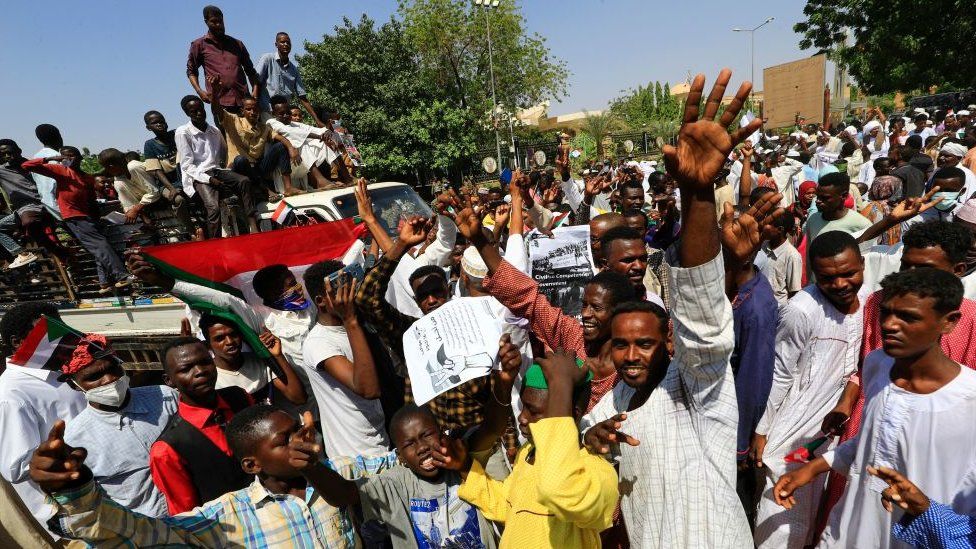Thousands of demonstrators gathered in front of the presidential palace in Khartoum, Sudan on Saturday calling for the military to seize power as the country grapples with the biggest political crisis in its two-year transition from the government of long-standing president Omar al Bashir who was removed from power in 2019.
Since then, the military and civilian groups have been sharing power in the East African country in an uneasy alliance. Following a failed coup attempt in September attributed to forces loyal to Bashir, military leaders have been demanding reforms to the Forces of Freedom and Change (FFC) coalition and replacement of the cabinet.
Civilian leaders, however, have accused them of aiming for a power grab. A military-aligned faction of the FFC, including armed groups that rebelled against Bashir, called for Saturday’s protests and held a short event in a nearby convention hall.
”Down with the hunger government’,” the protesters chanted and called for General Abdel Fattah al-Burah, head of armed forces and Sudan’s joint military-civilian Sovereign Council, to initiate a coup to overthrow the government.
Unlike previous demonstrations, protesters were able to reach the gates of the presidential palace which are typically barricaded. Earlier, members of an unidentified armed group removed security barriers around government buildings and prevented the police and security forces from preparing for the march, Khartoum State governor Ayman Khalid said in a statement.
In a speech on Friday, civilian Prime Minister Abdalla Hamdok presented a roadmap out of crisis and warned that failure to find a resolution would throw the country’s future “to the wind.”
At the root of the crisis are disputes on issues of justice, military restructuring, and the dismantling of the financial apparatus of Bashir’s regime, according to analysts. Abdelnaby Abdelelah, a protester from the eastern state of Kassala, complained that the government has overlooked other states beyond the capital of Khartoum and demanded that ”we want a government that knows about the things going on in the east.” This negligence of more rural areas and their poorer populations continues to be the driving factor behind Sudan’s dire situation.
Halima Abdi, is a member of the YCL’s London branch



